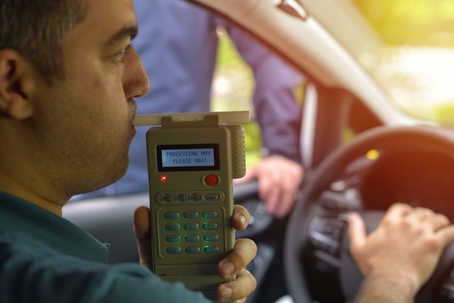A DUI (Driving Under the Influence) stop can be an intimidating and stressful experience. When law enforcement suspects a driver of operating a vehicle under the influence of alcohol or drugs, they may conduct a traffic stop to investigate further. In this blog, we will provide a comprehensive guide on what happens during a DUI stop, from the initial interaction with the police officer to potential consequences and legal rights.
The Initial Traffic Stop
During a DUI stop, the police officer will signal the driver to pull over to the side of the road. The officer may approach the vehicle, ask for identification, and inquire about the reason for the traffic stop, such as erratic driving, speeding, or a broken taillight.
Observations and Behavior Assessment
Upon approaching the vehicle, the police officer will observe the driver's behavior and demeanor for signs of impairment. This includes slurred speech, bloodshot eyes, the smell of alcohol, or any other indications of possible intoxication.
Field Sobriety Tests (FSTs)
If the officer suspects impairment, they may ask the driver to perform field sobriety tests (FSTs). Common FSTs include the walk-and-turn, one-leg stand, and horizontal gaze nystagmus (HGN) test. These tests assess the driver's balance, coordination, and ability to follow instructions.
Preliminary Breath Test (PBT)
In some jurisdictions, the officer may use a handheld device called a preliminary breath test (PBT) to measure the driver's blood alcohol concentration (BAC). The results of a PBT are typically not admissible in court, but they may influence the officer's decision to make an arrest.
Arrest and Miranda Rights
If the officer has reasonable suspicion of impairment based on the FSTs and observations, they may place the driver under arrest for DUI. At this point, the driver must be read their Miranda rights, which include the right to remain silent and the right to an attorney.
Implied Consent and Chemical Testing
After the arrest, the driver is generally required to submit to chemical testing, such as a breath, blood, or urine test, to determine their BAC or the presence of drugs. Refusal to take the test can result in administrative penalties, such as a driver's license suspension.
Booking and Release
Following the arrest, the driver is typically taken to the police station for booking. This involves recording personal information, taking fingerprints, and photographing the individual. Depending on the circumstances and the driver's cooperation, they may be released on bail or held until a court appearance.
Consequences and Legal Rights
If charged and convicted of DUI, the driver may face severe consequences, including fines, license suspension, mandatory alcohol education programs, probation, and even jail time. It is essential to consult with a DUI defense attorney to understand and protect one's legal rights throughout the legal process.
The Importance of Knowledge and Legal Support
Navigating a DUI stop can be a daunting experience, but being well-informed and having a dedicated legal team on your side can make all the difference. At The Moore Law Firm, PLLC, we understand the complexities of DUI cases and are committed to providing exceptional legal representation to clients in Morgantown, WV, and surrounding areas.
Our team of experienced criminal defense attorneys is well-versed in the intricacies of DUI law. We have successfully defended numerous clients, helping them achieve favorable outcomes and minimizing the impact of a DUI charge on their lives. With our expertise, we can guide you through the DUI stop process, protecting your rights and working towards the best possible resolution.
Remember, knowledge is power. Stay informed, understand your rights, and seek legal support when facing a DUI stop.
Contact The Moore Law Firm, PLLC today for a confidential consultation, and let us help you navigate the complexities of your case.

